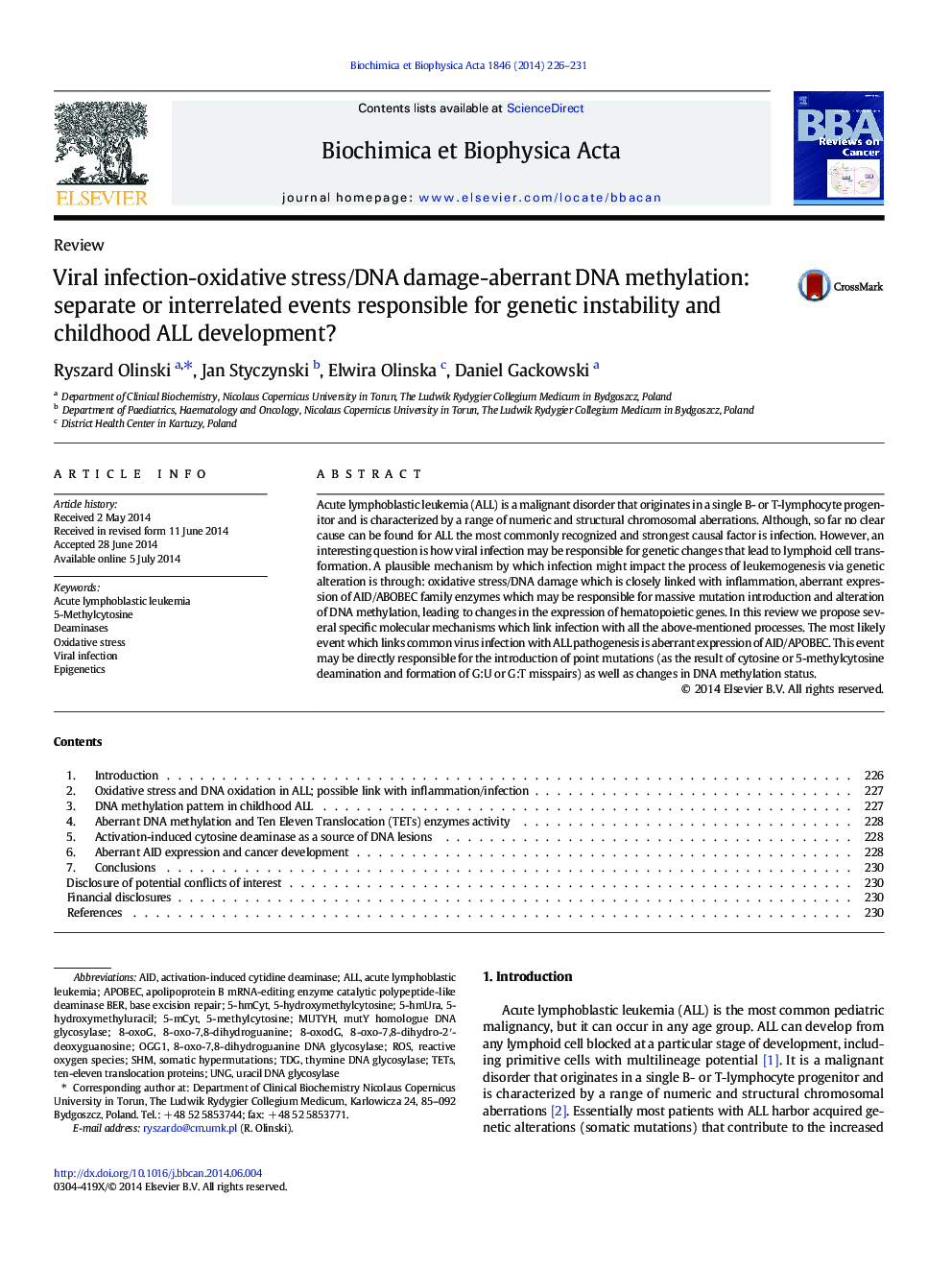| Article ID | Journal | Published Year | Pages | File Type |
|---|---|---|---|---|
| 10895603 | Biochimica et Biophysica Acta (BBA) - Reviews on Cancer | 2014 | 6 Pages |
Abstract
Acute lymphoblastic leukemia (ALL) is a malignant disorder that originates in a single B- or T-lymphocyte progenitor and is characterized by a range of numeric and structural chromosomal aberrations. Although, so far no clear cause can be found for ALL the most commonly recognized and strongest causal factor is infection. However, an interesting question is how viral infection may be responsible for genetic changes that lead to lymphoid cell transformation. A plausible mechanism by which infection might impact the process of leukemogenesis via genetic alteration is through: oxidative stress/DNA damage which is closely linked with inflammation, aberrant expression of AID/ABOBEC family enzymes which may be responsible for massive mutation introduction and alteration of DNA methylation, leading to changes in the expression of hematopoietic genes. In this review we propose several specific molecular mechanisms which link infection with all the above-mentioned processes. The most likely event which links common virus infection with ALL pathogenesis is aberrant expression of AID/APOBEC. This event may be directly responsible for the introduction of point mutations (as the result of cytosine or 5-methylcytosine deamination and formation of G:U or G:T misspairs) as well as changes in DNA methylation status.
Keywords
UngTDGSHMAPOBEC8-oxodGTETsOGG1Activation-induced cytidine deaminase8-oxoG5-Hydroxymethyluracil5-Methylcytosine5-hydroxymethylcytosine8-oxo-7,8-dihydro-2′-deoxyguanosine8-oxo-7,8-dihydroguanineThymine DNA glycosylaseUracil DNA glycosylaseROSSomatic hypermutationsEpigeneticsOxidative stressViral infectionAcute lymphoblastic leukemiaMUTYHALLAIDReactive oxygen species
Related Topics
Life Sciences
Biochemistry, Genetics and Molecular Biology
Cancer Research
Authors
Ryszard Olinski, Jan Styczynski, Elwira Olinska, Daniel Gackowski,
